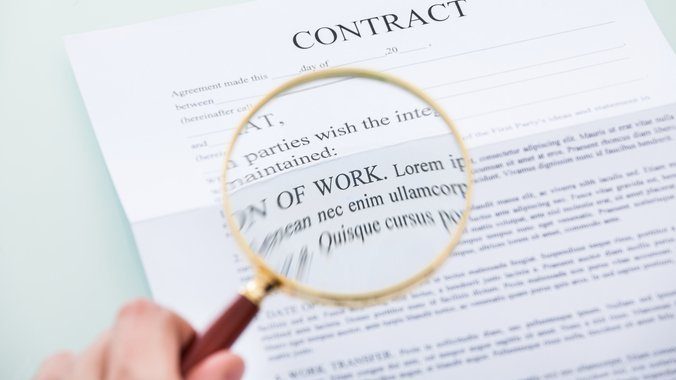This guide refers solely to the original IR35, the Intermediatries Legislation, enacted in April 2000. For guides on Off-payroll see our Off-payroll section.
Contractors can trigger an IR35 investigation by HMRC as a result of exhibiting behaviours that makes HMRC suspicious of IR35 status. HMRC monitor businesses and use this data to refine their risk profiling and IR35 targeting.
The triggers of an IR35 review can be either direct, because a contractor meets HMRC’s risk criteria, or indirect, as a result of another investigation, such as into corporation tax, VAT or payroll.
There are small specialist teams at HMRC that focus specifically on contractors, and whilst the chances of investigation are very slim, contractors should take appropriate measures to avoid IR35 investigations. It is vital to have IR35 tax investigations insurance in case lightning does strike - because defending an HMRC IR35 case, even if you win, can run into the tens of thousands, which are costs you cannot get back.
HMRC’s IR35 sector campaigns
One of the key criteria guiding HMRC’s IR35 investigation targeting is the sector in which a contractor works. And sectoral risk assessment and targeting are not just restricted to contractors.
Investigation teams targets sectors its risk profiling teams identify as being at high risk of non-compliance with HMRC IR35 rules. Campaigns have included doctors, dentists, teachers and trainers, and health professions such as physiotherapists, as well as restaurants and haulage firms. In more recent times we've seen the media sector targeted with high profile cases involving well known TV presenters. Simply put, no one is off limit when it comes to HMRC’s IR35 radar.
Specific sectors can also be targeted for IR35 investigations as a result of media pressure on HMRC that leads to Government action. Contractors in the public sector came under the spotlight as a result of the off-payroll rules and the Treasury investigation that preceded them.
Public sector organisations were required to identify off-payroll workers working for them, which in effect meant contractors. This highly specific information about contractors working in the public sector was passed to HMRC so they could review their IR35 status. In this case the taxman used this data to conduct hundreds of investigations into these contractors.
Data mining and analysis by HMRC to detect IR35 non-compliance
The days of the random inspection by HMRC are over: Once, local tax inspectors might open a certain number of random inspections on their patch into corporation tax, VAT or Pay As You Earn (PAYE) income tax, and these had the potential to catch contractors.
Those days are long gone, because HMRC lacks the resources and there are much more efficient methods of targeting possible IR35 offenders now available. HMRC’s risk assessment is conducted at a regional and national level using hugely sophisticated software able to analyse all public sector databases and identify discrepancies.
Contractors who have filed incorrect information or different types of tax paperwork that do not tally will almost certainly be flagged by the software for an inspector to review their file and make a decision on whether to have a HMRC inspector investigate their IR35 status. A contractor business with wildly fluctuating profits or expenses may also cause HMRC to look closer.
Don’t give HMRC a reason to think you might be breaking IR35 rules
Contractors should maintain high quality and accurate business records and use the services of a professional to ensure their information is filed correctly. Otherwise they could be inviting a HMRC tax inspector to come and investigate their IR35 status and other tax affairs.
If there are exceptional figures in the accounts and tax return, such as dramatic increases or falls in sales profits or expenses, contractors should include a note in the supplementary section of the corporation tax return explaining the reasons for the change. This may convince an inspector to pass over their business for review.
If an inspector’s attention is caught by another aspect of a contractor’s tax, such as corporation tax, VAT or PAYE, once the taxman knows they are dealing with a contractor it almost invariably ends up being referred to an HMRC's IR35 specialist team.
Real time information (RTI)
In addition to business records held on online databases that HMRC data mines, contractors should ensure they file accurate and timely real time information (RTI) submissions and their tax returns.
Contractors should rigorously file submissions: If a contractor consistently fails to get RTI right, the taxman immediately wonders what else the contractor is getting wrong, so they shoot up the inspector’s risk profile rating.
Anonymous tip-offs
A final trigger for IR35 investigations by HMRC can be tip-offs. Disgruntled spouses or partners have been known to anonymously tip-off HMRC about their spouse/partner’s financial affairs.
Ordinarily an anonymous tip-off would start as an income tax or corporation tax investigation, but once the inspector knows a contractor is involved, they will call in the specialist IR35 units.
If HMRC do open a "compliance check" with you, then this can quickly turn into an IR35 enquiry, and from the start it is essential that you hire specialists in IR35 tax defence to help you. In recent years dealing with IR35 and off-payroll enquiries has become highly specialised work.

